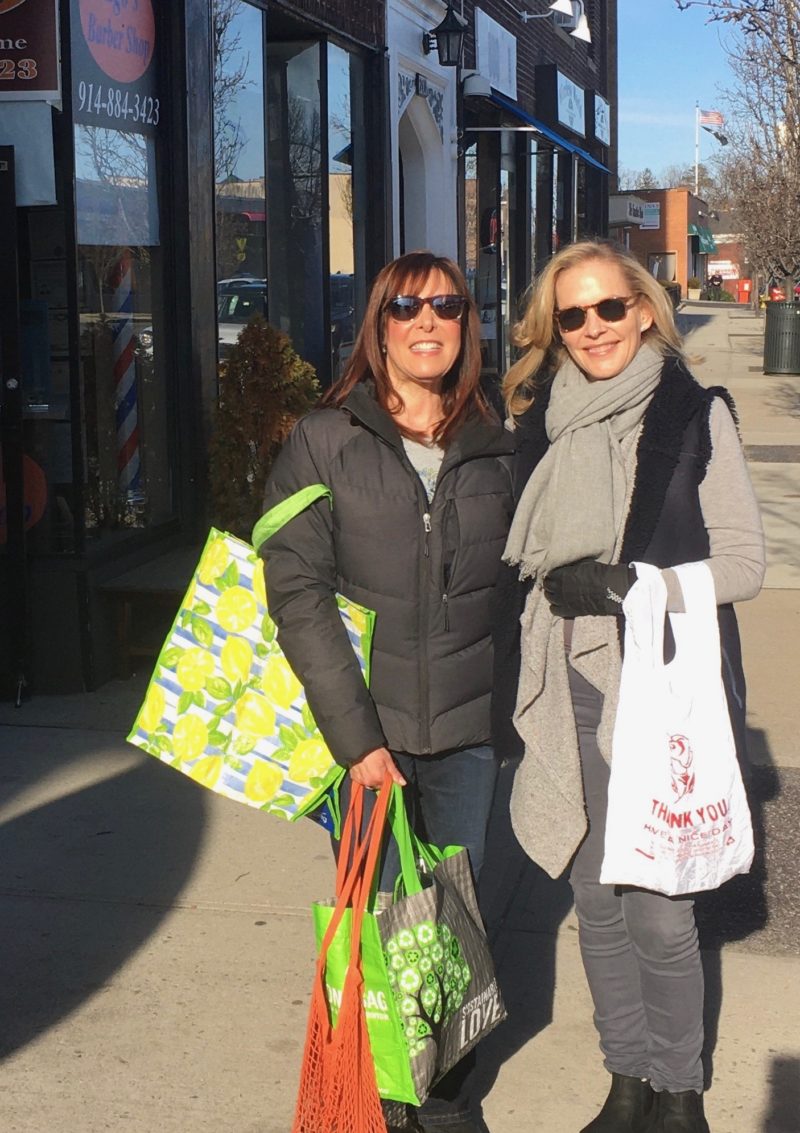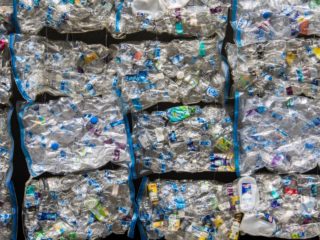With the outbreak of the coronavirus pandemic that has consumed and disrupted our lives, we’re searching for ways to stay safe: Wear a mask. Practice social distancing. Wash your hands. All of these hygiene practices are proven to minimize the spread of infection.
Along with these safe practices, however, another unsubstantiated recommendation has crept in: Ditch the reusable bags and other reusable items (cups, bottles, plates, containers). The claim by the plastics industry and their lobbying arms is that reusables are germ factories and virus spreaders. Their solution is to stick with “clean and safe single-use disposable products,” like plastic bags, water bottles, and containers.
The reusable-bags-are-unsafe message has taken hold of our collective fears. Spurred on by these special interest groups, businesses and legislatures across the country have now suspended or restricted plastic bag bans and zero waste policies in favor of disposable products.
You’ve got to hand it to the plastics industry. They’ve wasted no time in taking advantage of a global pandemic to further their interests. But that doesn’t mean we should stand by and accept these false claims. Let’s separate the fact from the fiction.
Contamination Risk of Reusable Bags
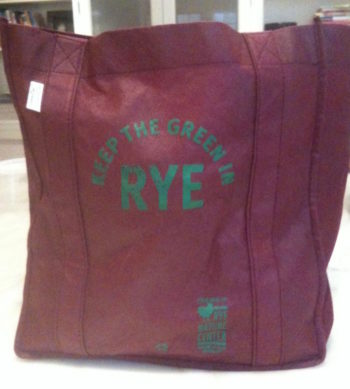
How does an item become contaminated — in this case, with coronavirus? First, it’s important to know that any item runs the risk of being contaminated if it’s touched by someone infected with the disease. And the risk increases with the number of people who come into contact with the item.
So let’s compare the number of people who handle reusable items with the number who touch single-use products. In general, the owner of a reusable bag is the only person who handles it until (possibly) she hands the bag to a store employee.
Now let’s imagine how many people touch the single-use plastic bag. Putting aside the fact that many hands touched these bags during their production (as reusable bags are also subject to handling during production), let’s begin with their arrival at the store. Someone has to offload the boxes from the truck, then unpack and store these bags before another worker stocks them at checkout. Finally, another employee fills and hands the bag to the customer.
Here’s the thing — single-use bags are subject to the same amount of human handling as reusable bags, if not more, so why would a store’s plastic bags have fewer germs than a shopper’s reusable bag? And this risk of infection goes both ways. A shopper runs the risk of being infected by a contaminated plastic bag, and a worker runs the risk of being infected by his fellow workers who handle the stocking and distribution of those disposable bags.
If you must go out, bring those items you know only you (and those you’re living with) have touched. This includes not only your reusable bags, but your purse, wallet, and any other personal effects.
The bottom line, however, is that infection spreads mainly through close person-to-person contact, so the risk of transmission from surfaces, bags, or containers is relatively low. The most effective way to stay protected is for everyone to not touch their faces, wear masks, practice social distancing, and have barriers placed between shoppers and employees.
Who Says Reusable Bags Are Unsafe?
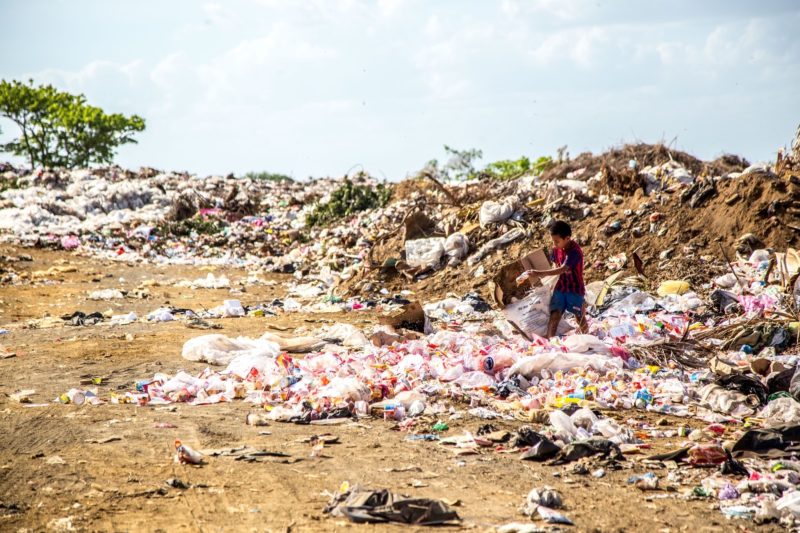
So who is spreading the story that reusable bags and other reusables are unhealthy? You guessed it! The agents whipping up the germaphobia theme are proponents of disposable products, and, in particular, the plastics industry. The Plastics Industry Association, for instance, has decried reusable bags as carriers of “viruses and bacteria,” while offering single-use products as the “the most sanitary choice.”
In contrast, what do the experts say?
- The CDC and major public health bodies have not issued any warnings about the safety of reusable bags.
- There are no independent studies to support the claim that single-use disposables are more hygienic than their reusable counterparts.
- According to Marketwatch, “Massachusetts Bureau of Environmental Health Director Jana Ferguson has said the department has seen ‘no scientific information specific to bags and the ability of reusable bags to be a way to spread coronavirus.'”
- Waste Dive reports that experts they’ve spoken with know of no scientific evidence that single-use plastic bags are less likely to spread coronavirus. “Additionally, the American Recyclable Plastic Bag Alliance … declined to offer any evidence proving its product is less prone to spreading the virus.”
- The New York Department of Health calls reusable bags “a smart choice,” but to keep them, and all other types of bags, clean.
As for plastic, a recent study concludes that coronavirus was “more stable on plastic and stainless steel than on copper and cardboard, and viable virus was detected up to 72 hours after application.” No study has been done on cloth, but the takeaway is that regardless of whether an item is reusable or not, contamination can occur on any surface.
While we’re on the topic, why has there been no backlash against other “reusables,” such as cellphones, clothing, hats, purses, to name a few? The cleaning regimen for these items has been accepted by all: wipe down or wash them, after use. This selective attack on reusable alternatives to single-use plastic products only bolsters the bias inherent in the reusables-are-unsafe message.
Reusable Bags Are Clean When You Clean Them!
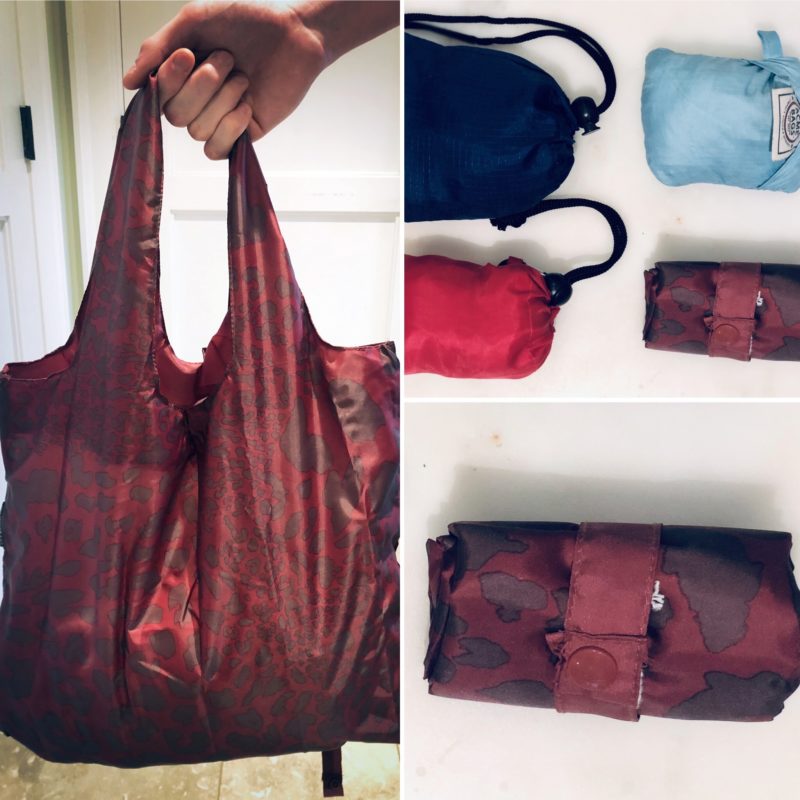
So now that we have the facts straight, let’s address the core issues: safety and hygiene. How do you do minimize contamination when you need to go to the store? I list steps below, but the general rule is to clean your reusable bags the same way you would clean your clothing. When they get dirty, you wash them. (Now, with heightened hygiene measures, you’ll need to wash them more.)
- Keep your reusable bags with you at all times, including bagging and loading of groceries. It’s safer for you and for store workers.
- After every shopping trip, clean your reusable bags and all items that you’ve purchased or touched while out. Wash down or spray all surfaces with soap or disinfectant. Wash your hands before and after you’ve stored purchased items.
- Pop the bags in the washing machine or give them a thorough scrub with soap and water.
- Thoroughly dry your bags before storing them.
- Another option is to leave bags and other non-perishable items, untouched, for at least 72 hours. This will allow the virus to become deactivated.
- Separate your bags for specific purposes — one for produce; one for meat; one for packaged products.
Trust Science, Not Biased Messaging
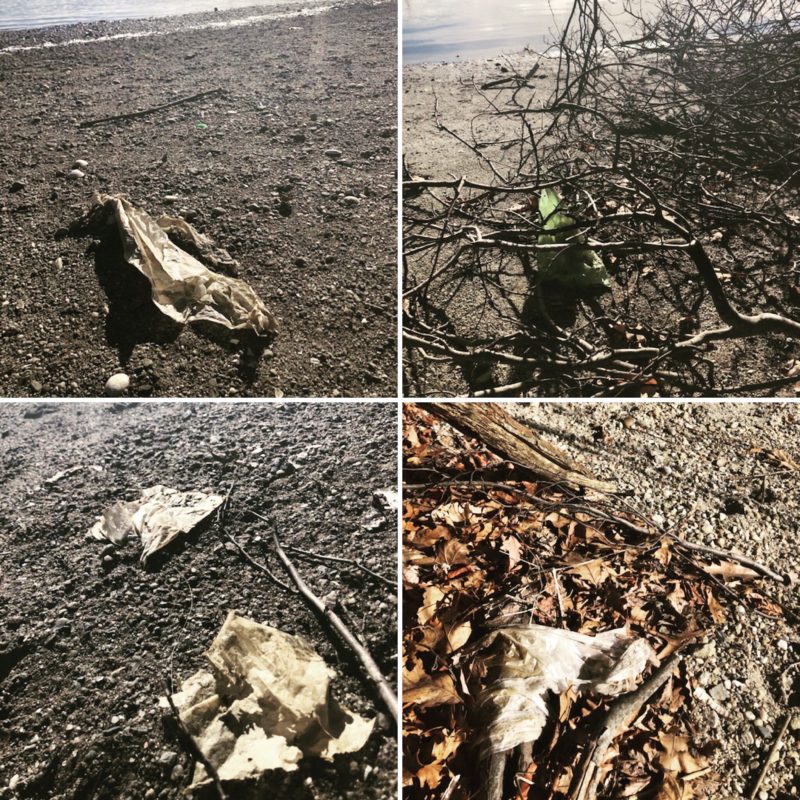
Trust the recommendations of our public health professionals whose findings are based on scientific research. And let’s cast a critical eye on those entities whose unfounded claims are driven by profit. Contrary to what we hear from these particular industry groups, hygiene and sustainability are not mutually exclusive.
Furthermore, remember why you’re using your reusable bags (and other reusables) in the first place. It’s to reduce unnecessary waste — much of it plastic — that pollutes our bodies, wildlife, and the environment. In fact, plastic waste carries far more health threats to humans and wildlife than other types of waste. Protecting the environment and protecting human health are one and the same.
When this health crisis is over, we’ll still be left grappling with the existential crises of our planet: climate change, environmental degradation, and the ever-increasing accumulation of permanent waste. If we allow these special interest groups to gain a foothold with their exploitation of a health crisis, it will be far more difficult to reverse the trend when life returns to normal. In short, stay the course and continue to green that life!

